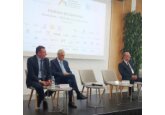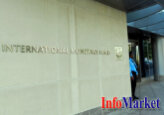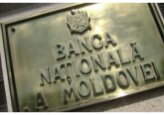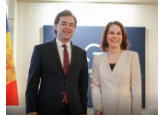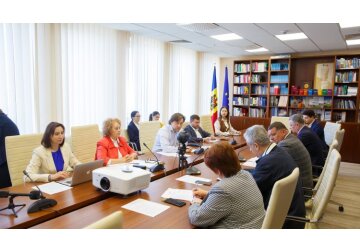
The Parliamentary Commission on Economy, Budget and Finance has heard the report of the Governor of the National Bank on inflation.
At the Commission’s Wednesday meeting, Octavian Armasu spoke about the factors that led to a significant increase in inflation in Moldova (over 27%), the tools the regulator uses to curb inflation, and presented the NBM's baseline forecast for further price increases. The head of the National Bank said that the rise in inflation is a global phenomenon, but its stronger growth in Moldova is linked to the war in Ukraine, external economic factors and the specifics of the national economy, which is small and open and exposed to external factors. According to him, the rise in inflation was influenced by the increase in world prices of energy resources, oil products and foodstuffs, as well as a significant increase in tariffs in the country. He also pointed out that many regulated tariffs remained unchanged for many years, either subsidized or artificially restrained. Thus, in 2010-2021 the average annual growth of tariffs was 3.6%, while in November 2021 tariffs increased by 10%, in December - by 1.3%, and in 2022 monthly growth was even more pronounced: January - 3.4%, February - 0.5%, March - 3.6%, April - 16.3%. Armasu stressed that since July 2021, anticipating economic factors, the National Bank began to apply more stringent instruments of monetary policy, but the war in Ukraine has made its adjustments, including in the evaluation of inflation forecasts. In this regard, in the second inflation review, the NBM revised its forecasts, taking into account new factors: in 2022, the average annual inflation rate in Moldova is expected to be 27.3%, in 2023 - 16.5%. According to Octavian Armasu, the inflation rate will peak in Quarter III, 2022, if no new shocks caused by the war in Ukraine occur, and the inflation rate will approach the target of the NBM (5% ±1.5 p.p.) at the end of the forecast horizon (end of 2023 - beginning of 2024). At the same time, the Governor of the NBM stressed that the corridor of uncertainties, which may affect the growth of inflation, remains extremely wide. While answering the question of why inflation is lower in Ukraine and Russia, Mr. Armasu said that these countries apply administrative fixing of the exchange rate and prices of a wide range of goods, as well as a number of other measures. At the same time, the Moldovan economy has more interaction with the Ukrainian economy, so the war affected Moldova much more than other countries of the CIS and the region. During the meeting, members of the Commission asked whether the measures taken by the National Bank to curb inflation were sufficient. Thus, Dumitru Alaiba noted that Ukraine and Georgia anticipated to some extent the growth of inflation, having begun to raise the base rate in March 2021, and Armenia - from January last year, while the NBM did it six months later. For his part, the Governor of the National Bank said that the situation was different in all countries, and it is necessary to consider everything individually. "The forecast of the National Bank did not anticipate big shocks until the third quarter of the last year. As soon as we saw the changes, we started taking measures," explained the head of the NBM. At the same time, he pointed out that the monetary policy cannot affect the first level effects - increase of world prices of goods which are imported by Moldova and the consequent chain increase of prices in the domestic market. MP Oleg Reidman expressed the opinion that the war in Ukraine was not the primary factor behind the rise in inflation. "It all started with the massive implementation of Energy Package III in Europe. When we went to buy gas from Russia in August, it turned out that we had to go to the spot. And the war, of course, had an impact, including on demand - 3 million Ukrainian refugees scattered across Europe, including Moldova, but it can be cited as the primary cause of inflation," Reidman said. In his opinion, false definitions and messages are used in determining the causes of rising inflation: "You can't hide behind the pandemic or military action. What did the state do, what are the Financial Stability Committee and the government doing jointly with the National Bank? We have been "drying" the market since July last year. We need to change the messages and look at the reasons more carefully,” the MP said. // 18.05.2022- InfoMarket.


